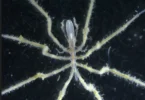The ocean is full of fascinating creatures, but few capture our imagination like the octopus. With its incredible intelligence, ability to camouflage, and fascinating behaviors, the octopus is truly one of the ocean’s most intriguing residents. These soft-bodied, eight-armed animals are not only masters of disguise, but they are also problem-solvers, escaping predators and navigating complex environments. Let’s dive into the life of the octopus and explore what makes it one of the most unique creatures on Earth.
A Brief Introduction to the Octopus
Octopuses belong to the cephalopod family, which includes squid, cuttlefish, and nautilus. These fascinating animals are found in oceans all over the world, from shallow coastal waters to the deepest parts of the sea. With over 300 species of octopuses, each one has its own unique characteristics, but they all share certain traits that make them stand out in the animal kingdom.
One of the most remarkable things about octopuses is their soft, flexible bodies. Unlike most other animals, they don’t have any bones, allowing them to squeeze through tight spaces and hide in places that would be impossible for other creatures. They can even change the texture of their skin to mimic rocks, corals, or seaweed, making them masters of camouflage.
Octopus Intelligence: Problem-Solving and Tool Use
What really sets octopuses apart from other marine creatures is their intelligence. These animals have been known to solve puzzles, escape from enclosures, and even use tools—behaviors that were once thought to be exclusive to humans and some higher mammals.
In the wild, octopuses have been observed using coconut shells and discarded shells to create shelters. They can also unscrew jars to access food, a level of problem-solving that’s truly impressive. This intelligence is largely due to their large, complex brains and their distributed nervous system, with two-thirds of their neurons located in their arms. This means that even their limbs can “think” independently, allowing them to react quickly to their environment.
The Art of Camouflage
One of the most awe-inspiring abilities of an octopus is its camouflage skills. Using specialized skin cells called chromatophores, an octopus can change the color, pattern, and even texture of its skin to blend seamlessly with its surroundings. This allows them to hide from predators and ambush prey.
But the octopus’s camouflage isn’t limited to just color changes. They can also alter the texture of their skin to mimic the appearance of coral, rocks, or even other animals like flatfish. This makes them almost invisible in their environment, a perfect strategy for both hunting and evading danger.
Octopus Behavior: A Life of Solitude
Unlike many other animals, octopuses are largely solitary creatures. They spend most of their lives alone, except during mating or when a mother is caring for her eggs. Octopuses are nocturnal hunters, using their excellent sense of touch to explore crevices and hunt for crabs, fish, and other small prey.
They are also known for their exceptional escape artistry. Octopuses have been observed slipping through tiny gaps in aquarium tanks, even escaping through holes smaller than their bodies. This ability to “disappear” makes them incredibly elusive, adding to their mystique.
The Lifespan of an Octopus: A Short but Fascinating Life
One of the more surprising facts about octopuses is that they don’t live long. Most species only live between 1 and 2 years, though some larger species like the giant Pacific octopus can live up to 3-5 years. Despite their short lifespans, octopuses achieve remarkable feats in their brief time on Earth.
Their life cycle is quite fascinating. After mating, the female lays thousands of eggs, which she carefully guards and tends to. She stops eating during this period, focusing entirely on protecting the eggs. After the eggs hatch, the mother dies shortly after. The young octopuses are left to fend for themselves, starting the cycle over again.
Threats and Conservation
While octopuses are incredibly resilient creatures, they are not without their threats. Overfishing, habitat destruction, and climate change pose significant risks to their populations. Many species of octopuses are also caught as bycatch in fisheries, which impacts their numbers. Protecting their habitats and ensuring sustainable fishing practices are key to ensuring that these incredible animals continue to thrive in our oceans.
The octopus is a remarkable creature that embodies the mystery and wonder of the natural world. With its intelligence, camouflage abilities, and unique behavior, it captivates both scientists and nature enthusiasts alike.








